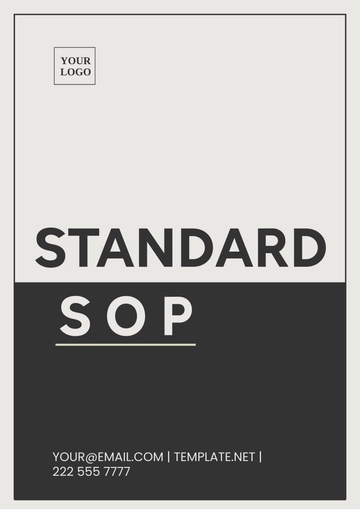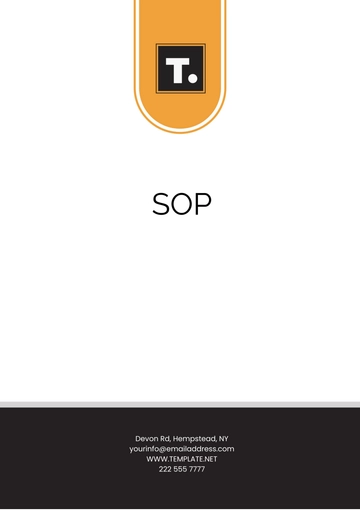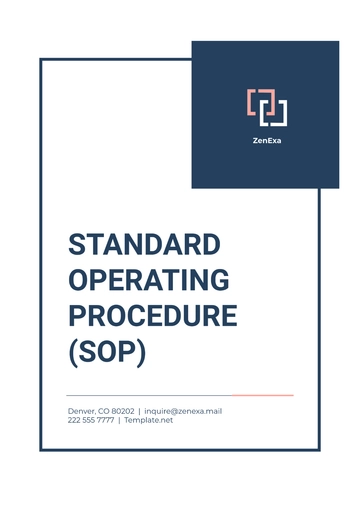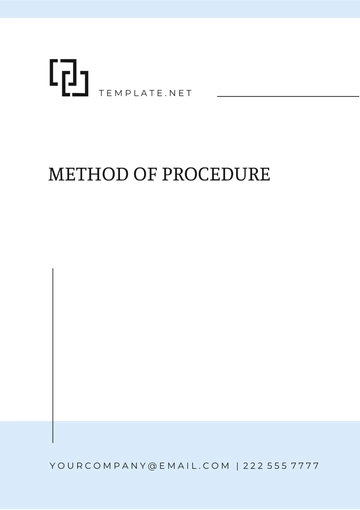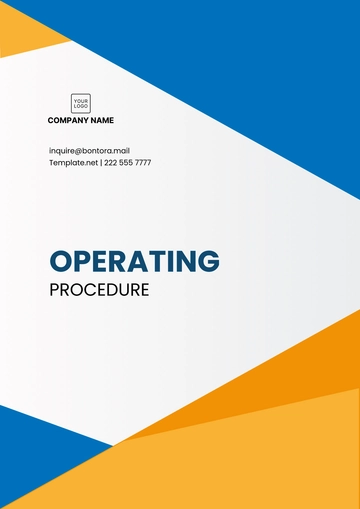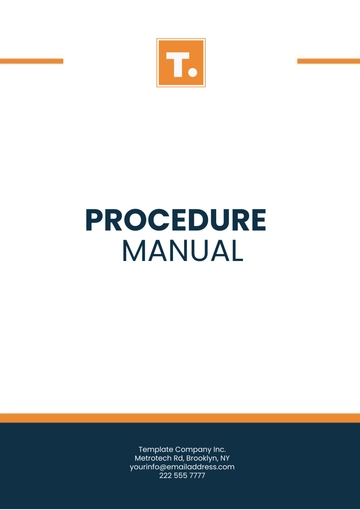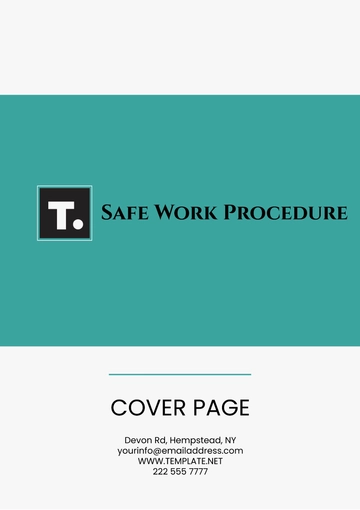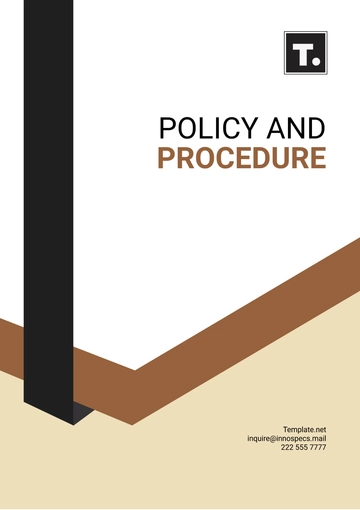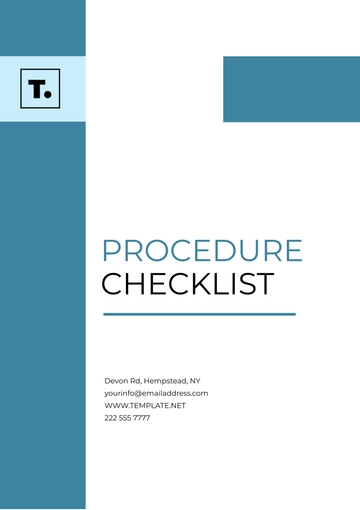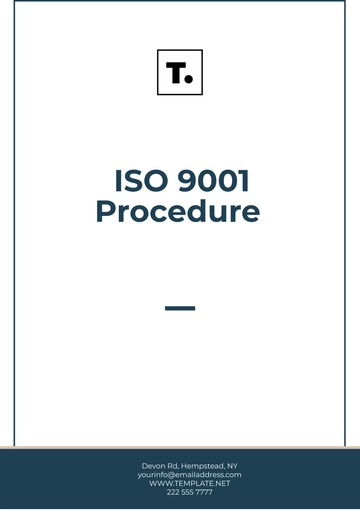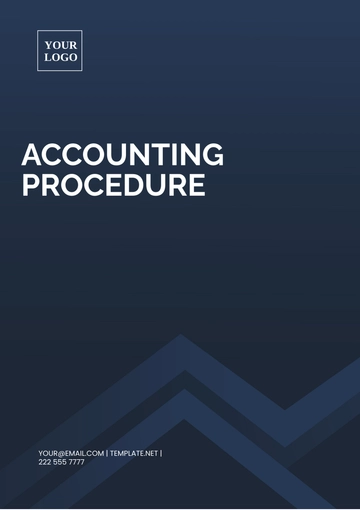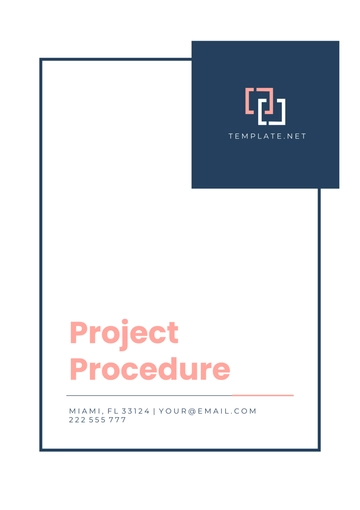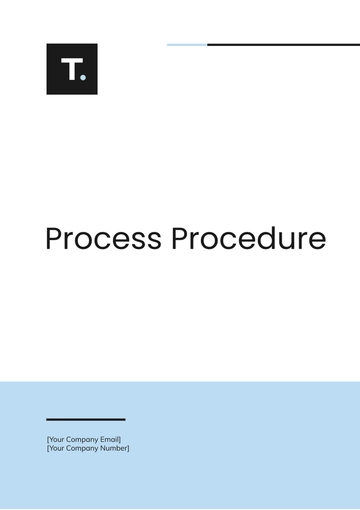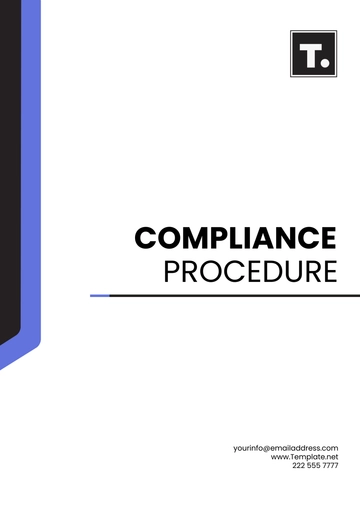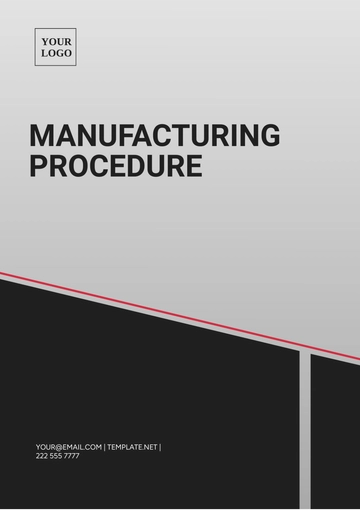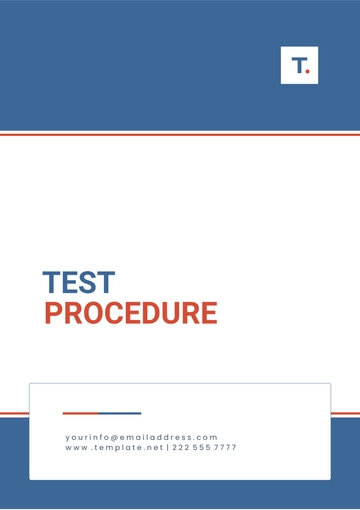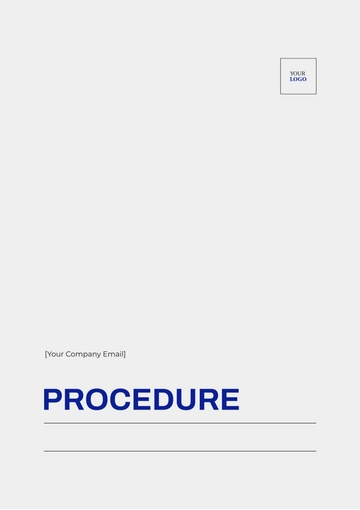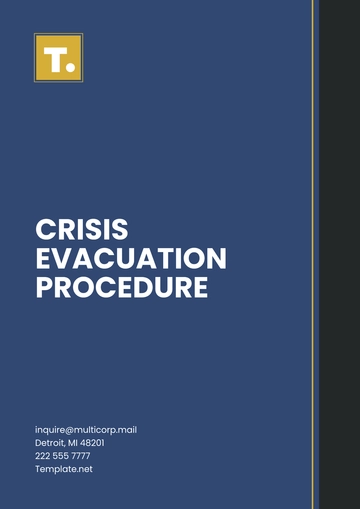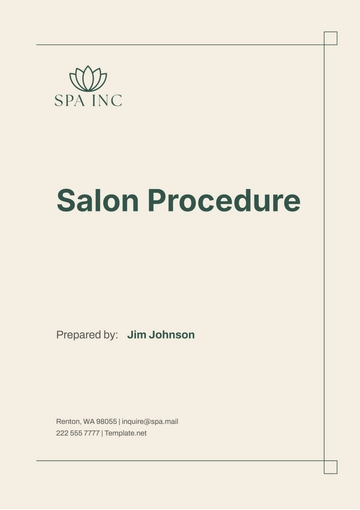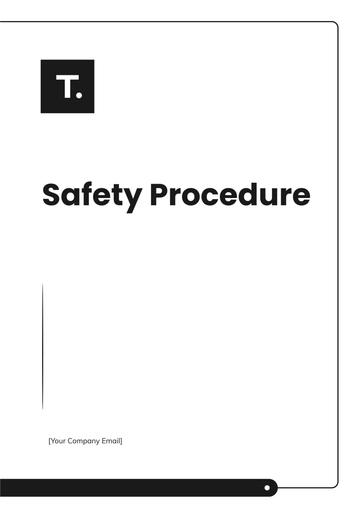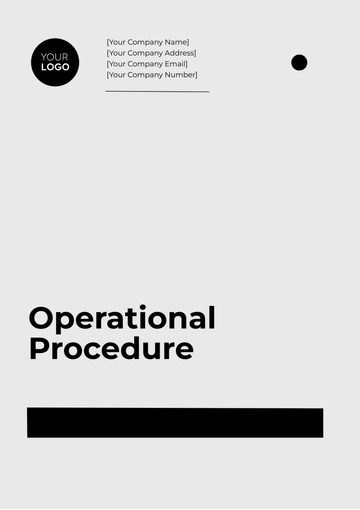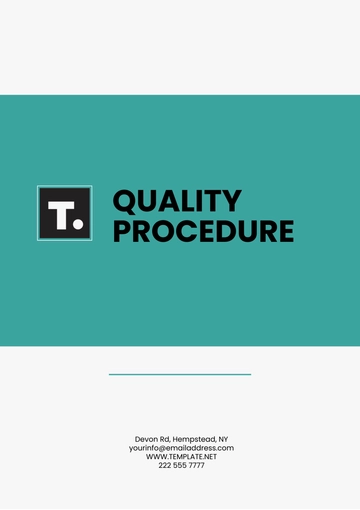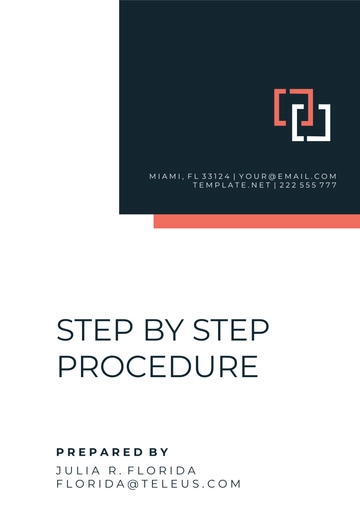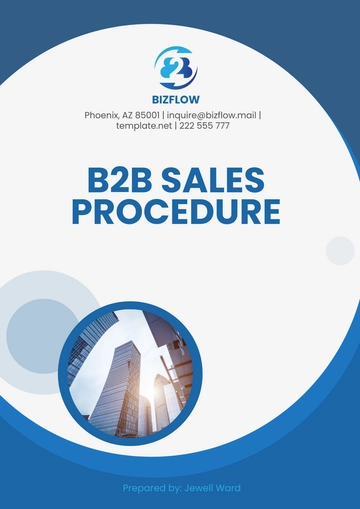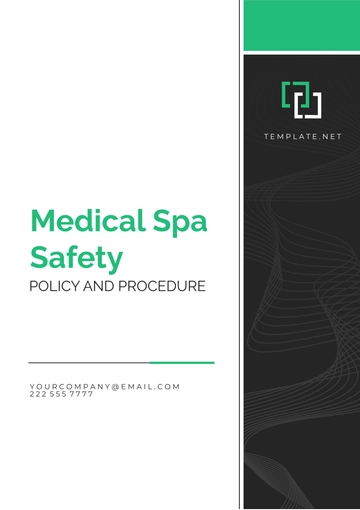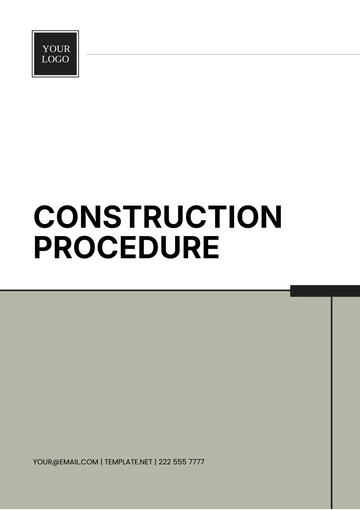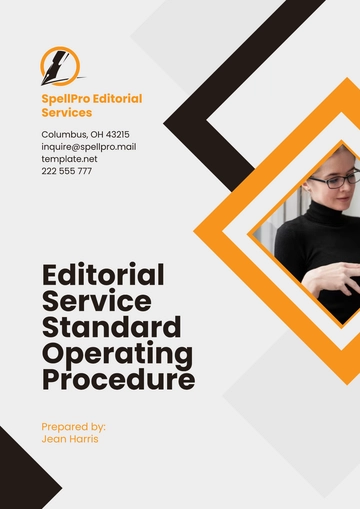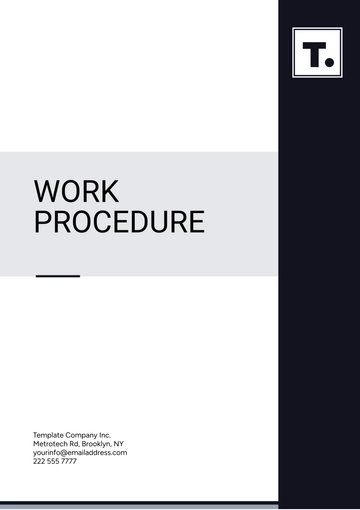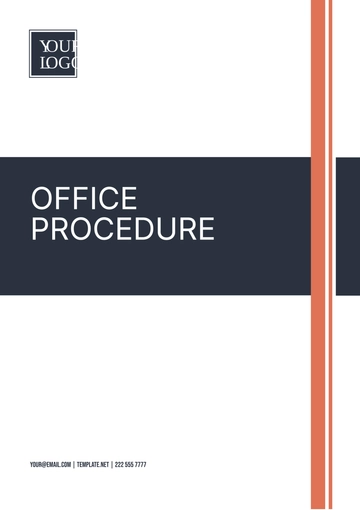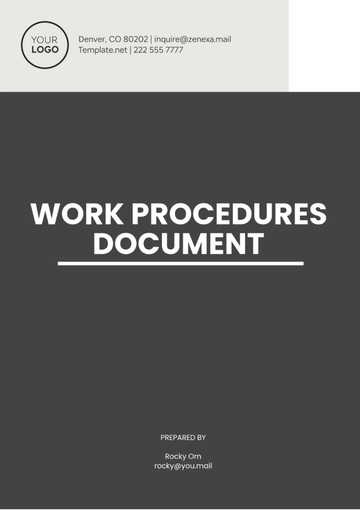Free Travel Agency Company Procedure
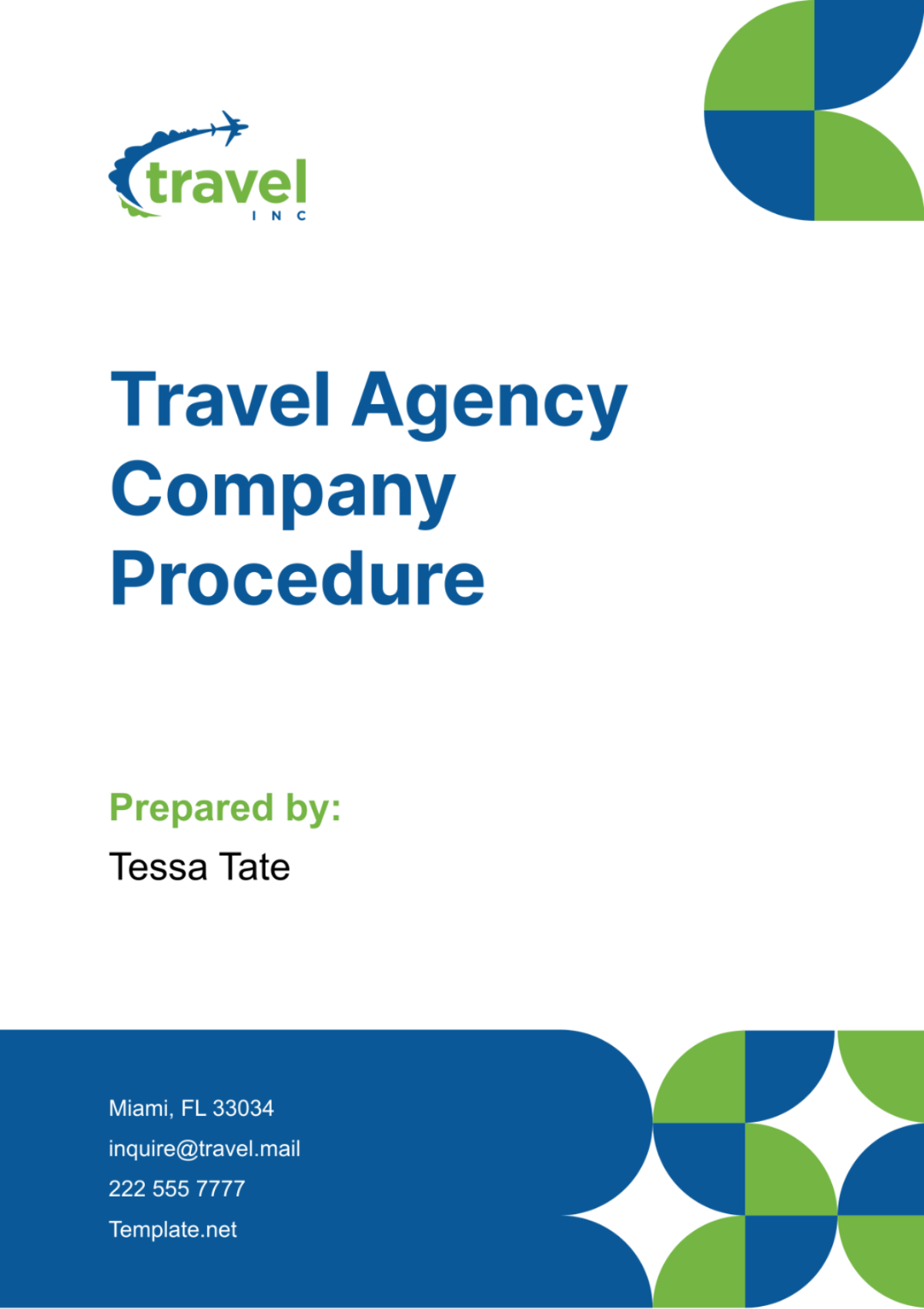
I. Introduction
A. Purpose
The purpose of this document is to establish clear and standardized procedures for the efficient operation of [Your Company Name], a prominent travel agency company specializing in providing exceptional travel experiences to our customers. These procedures aim to ensure consistency in service delivery, streamline operations, and enhance customer satisfaction by providing a framework for the seamless execution of our services.
B. Scope
These procedures encompass all aspects of [Your Company Name]'s operations, including customer inquiries, booking and reservation processes, customer service protocols, and quality assurance measures. They apply to all employees involved in customer-facing roles, including travel agents, customer service representatives, and management staff, across all branches and locations of the company.
Additionally, these procedures serve as a reference guide for employees to uphold [Your Company Name]'s standards of excellence in service delivery and adherence to industry best practices.
C. Audience
This document is intended for the guidance of all employees of [Your Company Name] who are directly or indirectly involved in serving customers and facilitating travel arrangements. This includes but is not limited to frontline staff responsible for handling customer inquiries, making bookings, and providing customer support, as well as managerial staff overseeing these activities. It is imperative that all employees familiarize themselves with these procedures to ensure a consistent and exceptional customer experience across all interactions.
II. Customer Inquiry Handling
A. Inbound Inquiries
Upon receiving an inbound inquiry from a customer via phone, email, or in-person visit, the following steps should be followed:
a. Greet the customer warmly and express gratitude for their interest in [Your Company Name]'s services. Establishing a positive rapport from the outset sets the tone for a pleasant interaction.
b. Collect relevant information from the customer, including their desired destination, travel dates, budgetary constraints, and any specific preferences or requirements they may have. Pay close attention to details to ensure personalized service.
c. Utilize the company's CRM (Customer Relationship Management) system to record the inquiry details and create a customer profile if one does not already exist. Accurate data management is essential for effective communication and follow-up.
d. Use active listening skills to understand the customer's needs and preferences fully. Asking probing questions and demonstrating empathy can help uncover underlying preferences and expectations.
e. Offer personalized recommendations and travel options based on the information gathered. Tailor the suggestions to align with the customer's interests, budget, and travel objectives.
f. Provide accurate and transparent information regarding pricing, availability, and any applicable terms and conditions. Transparency builds trust and ensures that customers can make informed decisions.
If further research or follow-up is required to address the customer's inquiry adequately, communicate the timeline for providing a comprehensive response and ensure timely follow-up. Managing expectations and providing regular updates demonstrate professionalism and commitment to customer satisfaction.
B. Outbound Inquiries
[Your Company Name] engages in outbound marketing efforts to proactively reach potential customers and stimulate interest in our travel services. The following procedures govern outbound inquiries:
a. Segment the target audience based on demographic data, previous interactions, and travel preferences to ensure the relevance of outbound communication. Tailoring the message to resonate with specific segments enhances engagement and conversion rates.
b. Develop compelling marketing messages and promotions tailored to the needs and interests of the target audience. Highlighting unique selling points and value propositions can capture the attention of prospective customers.
c. Deploy multichannel marketing campaigns, including email newsletters, social media posts, targeted advertisements, and direct mail, to reach prospective customers. Leveraging diverse channels maximizes reach and engagement opportunities.
d. Monitor the effectiveness of outbound campaigns by tracking key metrics such as open rates, click-through rates, and conversion rates. Analyzing performance data provides insights into campaign performance and informs optimization strategies.
e. Follow up with leads generated from outbound campaigns promptly and provide personalized assistance to address their inquiries and facilitate bookings. Timely follow-up reinforces brand engagement and encourages prospective customers to take action.
f. Continuously evaluate and refine outbound marketing strategies based on performance data and customer feedback to maximize effectiveness and return on investment. Iterative optimization ensures that marketing efforts remain relevant and impactful in driving business growth.
Inbound Inquiry Handling Process:
Step | Action |
|---|---|
1 | Greet the customer warmly and express gratitude. |
2 | Collect relevant information: destination, dates, etc. |
3 | Record inquiry details in CRM system. |
4 | Provide personalized recommendations. |
5 | Offer transparent information on pricing and availability. |
6 | Follow up if further research is required. |
III. Booking and Reservation Process
A. Flight Bookings
Upon receiving a request for flight booking from a customer, the following steps should be followed:
a. Use the designated booking platform, such as airline reservation systems or online travel agencies, to search for available flights based on the customer's preferences, including preferred airlines, departure times, and seating preferences.
b. Present the customer with available flight options, including prices, flight durations, layovers, and any other relevant details.
c. Confirm the flight details with the customer, ensuring accuracy in dates, times, destinations, and passenger information.
d. Proceed with the booking process, entering passenger details, contact information, and payment details into the booking system.
e. Verify the booking confirmation and provide the customer with a detailed itinerary, including flight numbers, departure and arrival times, and any applicable booking references.
f. Follow up with the customer to ensure satisfaction and address any questions or concerns they may have regarding their flight booking.
B. Hotel Reservations
When making hotel reservations for customers, adhere to the following procedures:
a. Access the hotel reservation system to search for available accommodations based on the customer's preferences, including location, star rating, amenities, and budget.
b. Present the customer with a selection of suitable hotel options, highlighting key features and amenities of each property.
c. Confirm the availability of the chosen hotel and room type for the desired dates, ensuring alignment with the customer's travel itinerary.
d. Collect necessary guest information, such as names, contact details, and special requests, and enter it into the reservation system.
e. Complete the reservation process, securing the booking and generating a confirmation number.
f. Provide the customer with a confirmation email containing the hotel details, reservation dates, and any relevant booking references.
g. Follow up with the hotel to ensure that any special requests or preferences noted by the customer are accommodated, such as room upgrades or early check-in arrangements.
IV. Customer Service
A. Pre-Travel Assistance
[Your Company Name] is committed to providing comprehensive pre-travel assistance to ensure that customers have a seamless and enjoyable travel experience. The following steps outline the pre-travel assistance process:
a. Provide customers with detailed information about their travel itinerary, including flight details, hotel reservations, transportation arrangements, and any additional services booked.
b. Assist customers with visa applications, travel insurance, and other pre-travel requirements, providing guidance and support throughout the process.
c. Address any questions or concerns raised by customers regarding their travel arrangements, offering timely and accurate information to alleviate any apprehensions.
d. Communicate any changes or updates to the travel itinerary promptly, keeping customers informed and minimizing disruptions to their plans.
e. Ensure that customers are well-prepared for their upcoming trip, offering tips and recommendations for a smooth travel experience, such as packing suggestions and local customs and regulations.
B. Post-Travel Assistance
[Your Company Name] values feedback from customers and is committed to providing post-travel assistance to address any issues or concerns that may arise after their trip. The post-travel assistance process includes the following steps:
a. Follow up with customers shortly after their return from their trip to gather feedback on their travel experience, soliciting input on various aspects such as accommodations, transportation, and activities.
b. Act promptly to address any complaints or issues raised by customers, investigating the root cause of the problem and offering appropriate resolutions or compensation as necessary.
c. Express appreciation to customers for choosing [Your Company Name] for their travel needs, reinforcing our commitment to customer satisfaction and loyalty.
d. Encourage customers to provide testimonials or reviews of their travel experience, leveraging positive feedback to enhance our reputation and attract new customers.
e. Maintain ongoing communication with customers to nurture long-term relationships and encourage repeat business, offering special promotions or incentives for future bookings.
Flight Booking Process:
Step | Action |
|---|---|
1 | Search for available flights based on customer preferences. |
2 | Present available flight options and confirm details with customer. |
3 | Enter passenger and payment details into booking system. |
4 | Verify booking confirmation and provide detailed itinerary. |
5 | Follow up with customer to ensure satisfaction. |
Hotel Reservation Process:
Step | Action |
|---|---|
1 | Search for available hotels based on customer preferences. |
2 | Present hotel options and confirm availability. |
3 | Collect guest information and complete reservation. |
4 | Provide confirmation details to customer. |
V. Quality Assurance
A. Monitoring and Evaluation
[Your Company Name] is committed to maintaining high standards of service quality and continuously improving our operations through rigorous monitoring and evaluation. The following procedures outline our approach to quality assurance:
a. Regularly monitor customer interactions and bookings to ensure compliance with company standards and procedures. This includes reviewing recorded calls, emails, and other communication channels to assess the quality of service provided.
b. Conduct periodic audits of customer files and documentation to ensure accuracy and completeness, identifying any discrepancies or errors that may require corrective action.
c. Analyze customer feedback and reviews to identify trends, recurring issues, and areas for improvement. This includes tracking customer satisfaction scores, Net Promoter Score (NPS), and other key performance indicators to gauge overall satisfaction levels.
d. Collaborate with frontline staff, supervisors, and management to identify root causes of quality issues and implement corrective actions and process improvements.
e. Provide ongoing training and development opportunities to employees to enhance their skills, knowledge, and performance in delivering exceptional customer service.
f. Utilize quality assurance tools and software to streamline monitoring and evaluation processes, track performance metrics, and generate actionable insights for improvement.
B. Performance Metrics
[Your Company Name] tracks key performance indicators (KPIs) to measure the effectiveness of our operations and drive continuous improvement. The following are some of the performance metrics we monitor:
a. Customer Satisfaction Score (CSAT): Measures the overall satisfaction of customers with their travel experience, typically obtained through post-travel surveys or feedback forms.
b. Booking Conversion Rate: Tracks the percentage of inquiries or leads that result in confirmed bookings, indicating the effectiveness of our sales and marketing efforts.
c. Response Time: Measures the average time it takes for [Your Company Name] to respond to customer inquiries or requests, reflecting our commitment to timely and efficient service delivery.
d. Customer Retention Rate: Indicates the percentage of customers who choose to book with [Your Company Name] again for their future travel needs, highlighting our ability to foster long-term customer relationships.
e. Service Quality Metrics: Includes metrics such as accuracy of bookings, resolution time for customer complaints, and adherence to service level agreements (SLAs), which are monitored to ensure consistency and reliability in service delivery.
f. Financial Performance Indicators: Tracks revenue growth, profit margins, and other financial metrics to assess the overall health and profitability of [Your Company Name]'s operations.
VI. Conclusion
A. Review and Revision
This document will be subject to periodic review and revision to ensure its relevance and effectiveness in guiding [Your Company Name]'s operations. Feedback from employees, management, and customers will be solicited and incorporated into updates as necessary.
Any changes to company policies, industry regulations, or market dynamics will be reflected in the updated procedures to ensure compliance and alignment with best practices.
B. Compliance
All employees are expected to adhere to the procedures outlined in this document to maintain consistency, quality, and compliance in our operations. Failure to comply with these procedures may result in disciplinary action, up to and including termination of employment.
[Your Company Name] is committed to fostering a culture of continuous improvement and accountability, where employees are empowered to contribute to the company's success and uphold our commitment to delivering exceptional customer experiences.
- 100% Customizable, free editor
- Access 1 Million+ Templates, photo’s & graphics
- Download or share as a template
- Click and replace photos, graphics, text, backgrounds
- Resize, crop, AI write & more
- Access advanced editor
Establish clear company procedures with Template.net's Travel Agency Company Procedure Template. This customizable document provides a structured framework for defining various procedures and protocols within your agency, covering areas such as booking processes, customer service standards, and administrative tasks. Crafted with clarity and professionalism, it ensures consistency and efficiency in your agency's operations. Editable in our Ai Editor Tool for seamless customization and integration into your agency's procedures manual.
